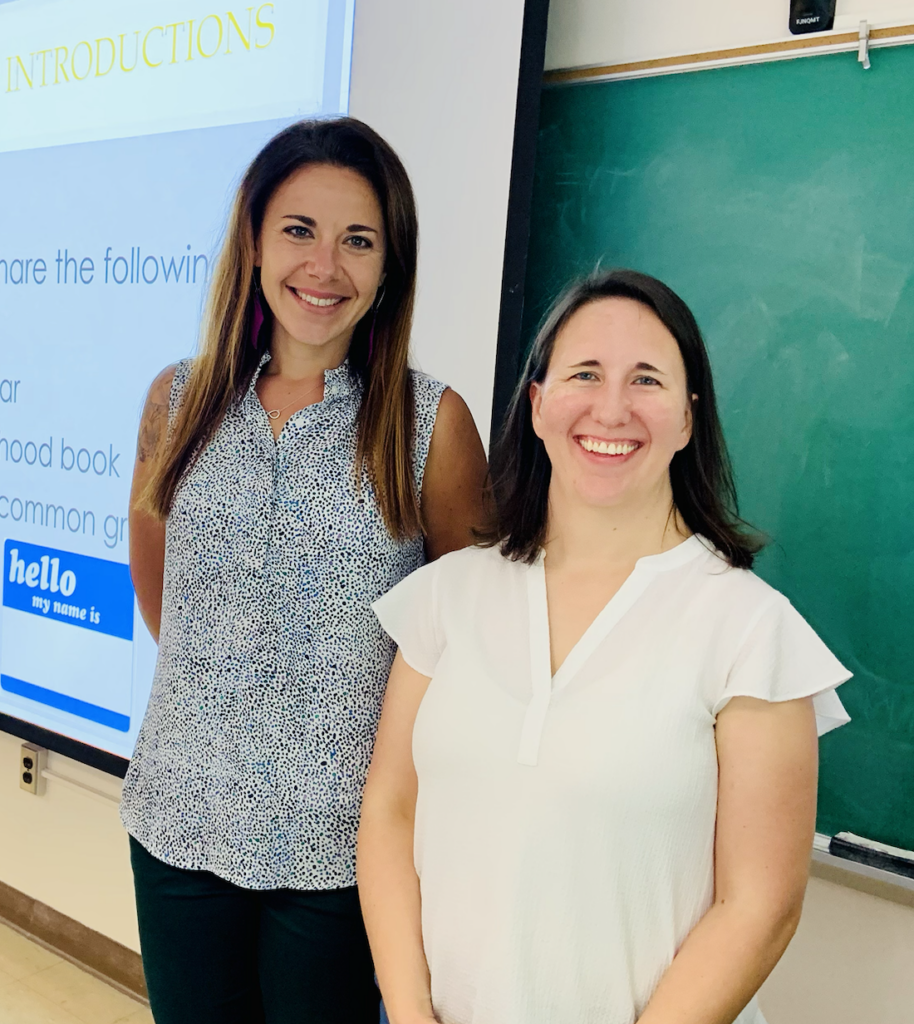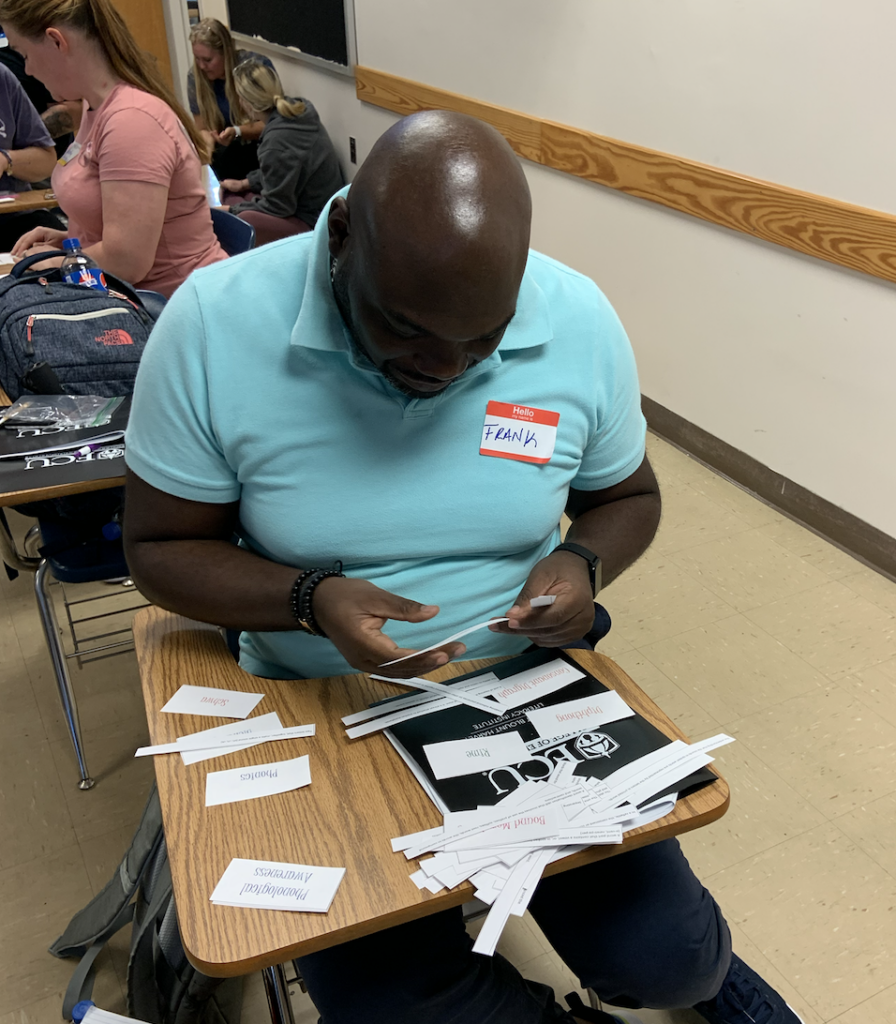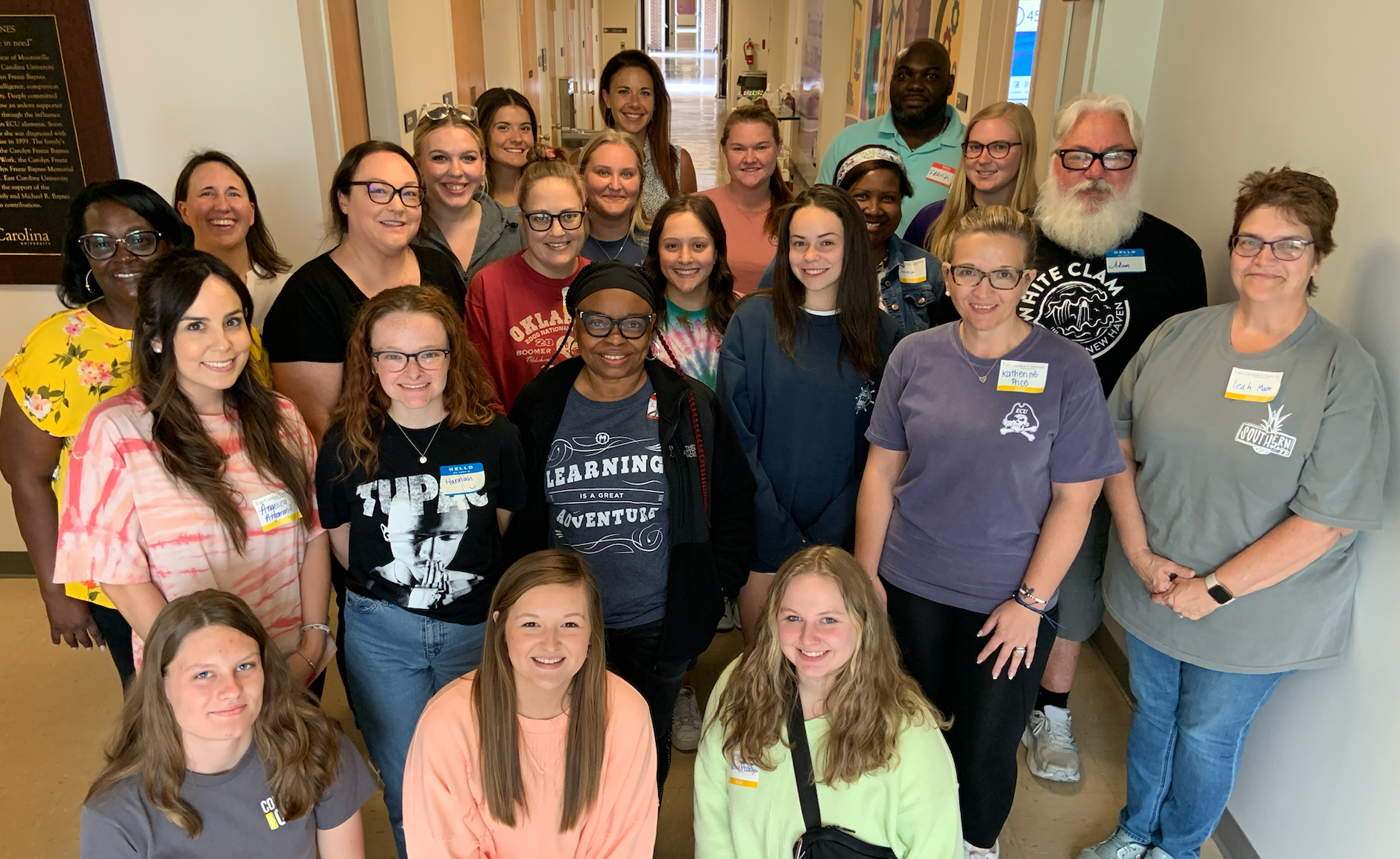On Saturday April 22, 2023, the Department of Literacy Studies, English, Education, and History Education hosted 24 students at a day-long Foundations of Reading Test (FoRT) preparation workshop thanks to the generosity of the late Felix and Margaret Blount Harvey and daughters Sunny Burrows and Leigh McNairy.
Elementary Education (K-6) and Exceptional Children: General Curriculum (K-12) initial teaching licensure applicants are required to pass the Foundations of Reading Test according to the NC Department of Public Instruction testing policy. ECU teacher education candidates take reading/literacy coursework that provides the opportunity to learn the knowledge required to pass the exam, however, as LEHE interim chair, Dr. Elizabeth Swaggerty notes, “High-stakes tests such as teacher licensure exams can be intimidating. We want to help students with content knowledge review, test-taking tips, and confidence-building in order to boost success.” Additionally, Swaggerty explained that the current version of the FoRT licensure exam is being retired in July 2023. The new version of the test, 190, includes all content related to the prior version plus the addition of science of reading components. She stated, “With the perception that the new version of the test is more complex and difficult, students are eager for additional support in preparing for it.”
Ms. Erin Kessel, a session facilitator, said “The new Foundations of Reading Test 190 is a much more complex and situational based assessment that requires test takers to really lean on their learnings in their university course work, specifically much of it from READ courses. During this session, we were able to break down each sub-area and focus on key concepts and ideas that will support the test takers as well as build bridges between what they have learned in their coursework with what will be assessed. We were able to provide ample practice time and even time to break down and discuss challenging sample questions where students were able to share their thinking within a safe space. It was a great mix of participants with some who are already in the classroom and working toward their certification while others are traditional students who are working towards graduation. The benefit of having participants from both areas allowed for a great depth in thinking and conversation. It was clear that every participant was there to gain knowledge and understanding as they were all actively participating in every activity.
The session was held on campus in the Rivers building and lasted from 9-3:30. Instructors Ms. Erin Kessel and Dr. Marjorie Rowe provided an overview of the structure of the new exam and then participants had the opportunity to dig into each sub-area (foundations of reading development, reading comprehension, assessment and instruction, and integration of knowledge and understanding), highlight key terms and ideas, and practice applying their learning to sample questions. Participants left with access to the presentation, take-home vocabulary flash cards, and “tips and tricks” for success on the test. Participants even enjoyed a complimentary lunch.


Overall, participants expressed gratitude for the session and reported feeling more confident after our workshop. Participant Priscilla Freeman said, “The session for the Fort test was very informative. I had a chance to collaborate with my peers on various strategies to answer some of the challenging questions. The instructors of the class were awesome in their presentation of the material.”
Dr. Marjorie Rowe, a session facilitator, said, “Students really appreciated the opportunity to engage in a no-cost, in-person review session with experienced ECU Reading/Literacy faculty in a non-commercial setting. Students dug deep into the rigorous content all day long and supported each other’s learning by posing good questions for clarification and explaining their reasoning as we worked through challenging sample test items together. It was wonderful to see several on-campus students I taught earlier in their degree programs who are now very close to becoming teachers. I enjoyed meeting lots of dedicated new-to-me students, including a few who drove from as far away as Morrisville and Chapel Hill to be with us.”
Ms. Tanya Cannon, Reading Education Program Coordinator said, “Students shared with me connections between the workshop and their reading coursework and indicated that this session helped them to dive deeper into the components of literacy instruction for a more thorough understanding. No doubt, this session helped boost students’ confidence as they prepare to take this test.”
